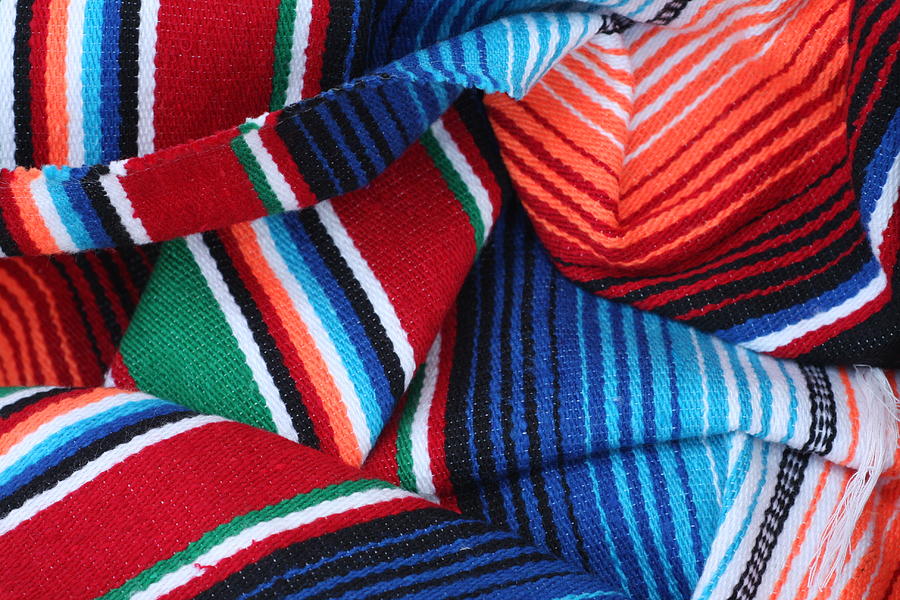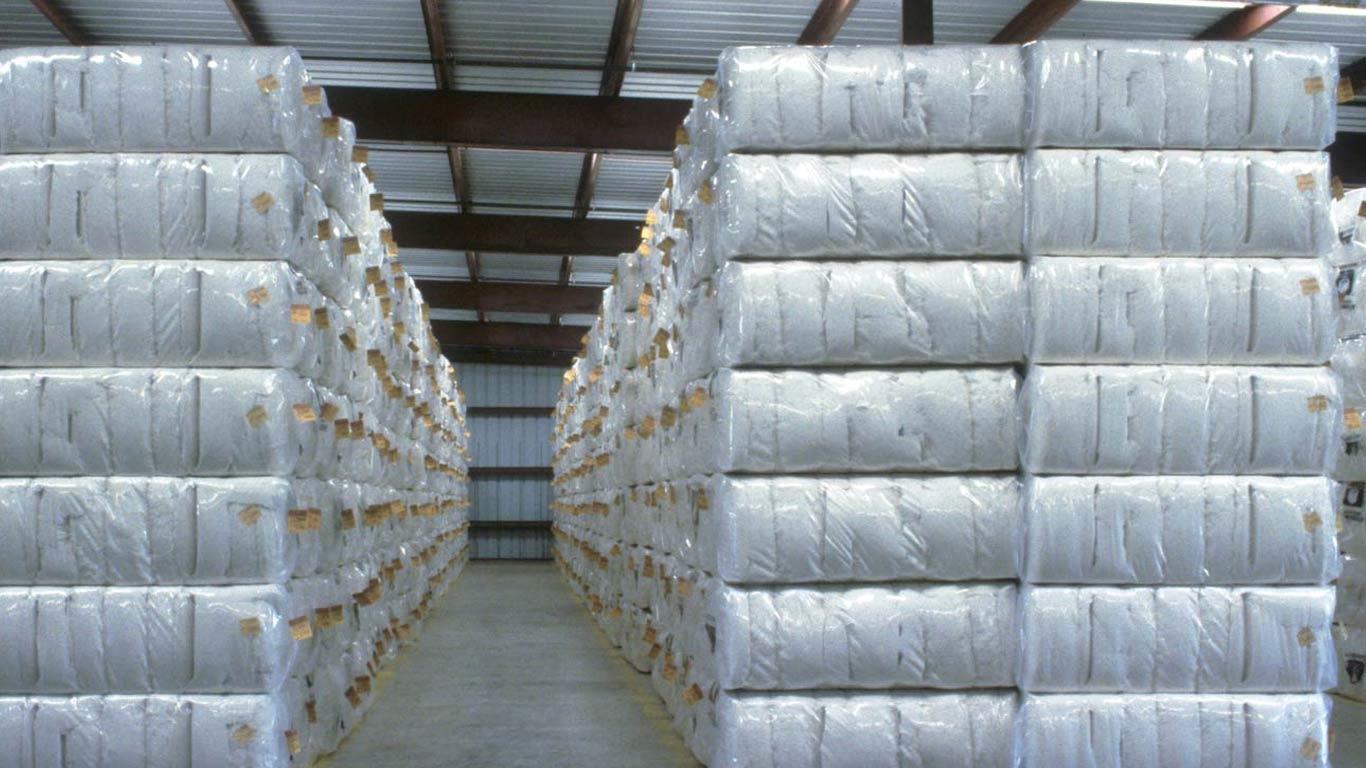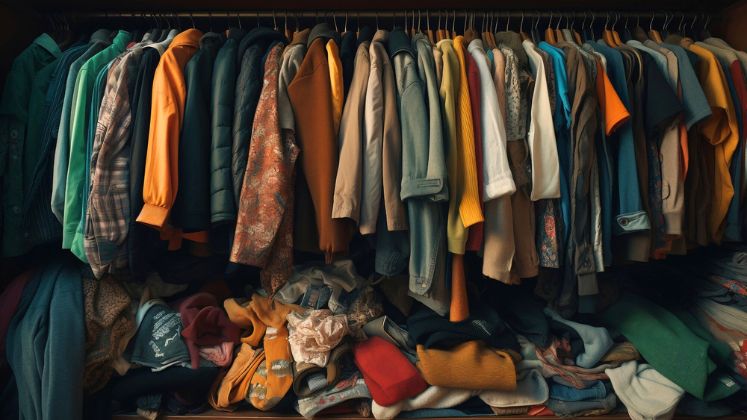FW
A recent study reveals that 19 per cent of products sold by US and global retailers in the past year contained traces of banned Chinese cotton, underscoring the ongoing struggle to adhere to US regulations aimed at preventing imports linked to forced labor in China.
Conducted by researchers from natural resource analytics and testing firms Stratum Reservoir and Applied DNA Sciences, the study analyzed garment samples, cotton swabs, and shoes from major retailers and e-commerce platforms. The retailers involved were not disclosed.
Employing isotopic testing, experts traced cotton origins by analyzing stable element concentrations. The focus was on Xinjiang, China's major cotton-producing region, amidst allegations of human rights abuses.
Despite US legislation enacted in 2021 to curb such imports, the study suggests ongoing challenges. A federal report indicates Xinjiang cotton accounted for a significant portion of China's production and global supply. Notably, countries like Vietnam, Cambodia, and Bangladesh, major cotton producers, import finished fabric from China, often leading to US distribution.
Of the 822 products tested, 19 per cent contained Xinjiang cotton. Alarmingly, 57 per cent of these items falsely claimed US origin, while two-thirds blended Xinjiang cotton with materials from other regions.
Applied DNA Sciences, one of the testing firms, refrained from disclosing specific brands or retailers but emphasized sourcing within the US and from e-commerce brands catering to the country.
Pure London x JATC, the dynamic collaboration celebrating British fashion, announces its eagerly anticipated return for its second season. Scheduled from July 14th to 16th, 2024, at Olympia, this fashion extravaganza promises to spotlight the best of British design prowess.
Following a triumphant debut, Pure London x JATC is primed to once again dazzle the industry with an impressive lineup of fashion collections. From renowned British labels to emerging designers, the event is poised to unveil the latest trends and innovations destined to shape the UK market.
Anchored by fashion visionaries Anita Mehan & Rita Abrol, Another Sunday is set to mesmerize buyers with its latest collection in the Women's segment. Renowned for its ageless, aspirational, and distinctly feminine designs, Another Sunday offers a range of stylish pieces for every occasion. Also returning is Louche, a perennial favorite renowned for its subtle British flair and affordable yet excellent designs.
Drawing inspiration from the Cornwall coast, Bridie & Bert's collection evokes nostalgic seaside charm with its range of comfortable beach cover-ups. Meanwhile, Wkndgirl, established by seasoned fashion experts, will showcase its latest collection blending creativity with affordability.
Making its debut is Matilda London, infusing American, European, and Middle Eastern influences into sustainable, handmade pieces. Similarly, Rainmakr London, Nova of London, and other homegrown brands are set to impress with their unique offerings.
Among the highlights is sustainable brand Pink Lemons, which champions India's rich craft traditions and a slow fashion ethos. In the Jewelry segment, Love Rocks' handmade pieces featuring conflict-free gemstones stand out for their meaningful charm.
Gloria Sandrucci, Event Director of Pure London, expresses excitement about partnering with JATC once again, emphasizing their commitment to showcasing the best of British fashion talent. Against the iconic backdrop of Olympia, this collaboration promises to elevate UK fashion onto the global stage.
In 2024, Gildan Activewear anticipates flat to low-single digits growth in revenue, and an adjusted operating margin slightly above the high end of its 20 per cent target range.
Despite a 1 per cent decline in sales to $696 million in the first quarter, Vince Tyra, CEO remains optimistic about the company's performance. Describing the Q1 financial results as ‘solid,’ Tyra attributes the slight decrease in revenue to lower net selling prices and an unfavorable product mix. During the quarter, the company’s shipments remained consistent with expectations, with activewear sales increasing by 1 per cent to $592 million. This growth was driven by increased shipments and positive trends in point-of-sale across various regions, along with seasonal replenishment at distributors.
Notably, national account customers contributed to the strong momentum in activewear sales, while international sales showed signs of stabilisation and recovery in certain regions.
However, sales in the hosiery and underwear category declined by 10 per cent compared to the previous year, primarily due to an unfavorable product mix and the phasing out of the Under Armour business.
In terms of financial performance, Gildan Activewear’s net sales for Q1 2024 declined by 1 per cent to $695.8 million from the same period last year. Operating income declined by 17.9 per cent to $105.1 million, and net income declined by 19.4 per cent to $78.7 million.
Despite these challenges, Tyra remains optimistic, emphasising the company's strong business model and focus on key priorities. He highlights the positive momentum in ring spun and fleece products .

The Karl Mayer Group emerges triumphant from Techtextil, the premier industry trade fair held in Frankfurt am Main from April 23 to 26, 2024. Positioned as a leading player in the Technical Textiles sector, the global giant showcased its prowess in addressing contemporary challenges across various domains such as Warp Knitting, Flat Knitting, Composites, Digitization, and Care Solutions.
Engaging exhibition draws attention
The exhibition garnered significant attention, with approximately 380 registered visitors flocking to the Karl Mayer stand. Additionally, 76 customers journeyed to the group's headquarters in Obertshausen for an exclusive in-house show, underscoring the eagerness to witness the latest innovations firsthand. Notably, the majority of attendees hailed from Europe, with Germany leading the pack, while others hailed from the USA, India, Turkey, and the UK. Impressively, 32 per cent of the attendees marked new connections, signaling a promising influx of fresh interest.
Quality conversations take center stage
While visitor numbers maintained consistency compared to the previous edition of Techtextil, the quality of interactions saw a notable upswing, according to feedback from the trade fair team. Discussions revolved around translating ideas into actionable projects, exploring specific machine capabilities, and assessing the application scope of Karl Mayer's cutting-edge technologies. Particularly, inquiries surged from the composites sector, reflecting keen interest in multiaxial warp knitting machines and those with weft insertion capabilities.
Prospects abound for future collaborations
Hagen Lotzmann, Sales Manager of the Technical Textiles Business Unit, expressed optimism, citing numerous fruitful discussions that have laid the groundwork for potential projects in the ensuing months. Key focal points included KM.ON's digital solutions, Care Solutions' offerings, and the transformative potential of Karl Mayer warp preparation machines in bolstering business opportunities and scaling operations.
Spotlight on industry trends
Techtextil not only serves as a platform for product showcases but also as a barometer for industry trends. Michael Kieren from Karl Mayer's Business Development department remarked on the prevailing optimism, with manufacturers across diverse sectors, from fashion to automotive, actively seeking innovative solutions. Notably, brands exhibited a heightened inclination towards investing in groundbreaking product advancements.
Innovations pave the way
The industry is witnessing a surge in products characterized by unprecedented surface textures, structures, and functionalities, facilitated by the integration of conductive or luminous materials into textiles. Karl Mayer's Textile Circuit initiative, which explores innovations with conductive yarns directly incorporated into warp knitting machines, garnered significant attention. Spacer fabrics, renowned for their versatility in upholstery and ventilation applications, emerged as a topic of widespread discussion, showcasing their vast potential across various domains.
Setting standards with sustainability
Amid growing environmental consciousness, sustainability emerged as a pivotal concern. The utilization of recycled materials and resource-efficient production methods gained traction, with preformed knitted fabrics from Stoll machines emerging as a frontrunner. These fabrics, tailored to individual applications, promise minimal waste generation and versatile material sourcing options. Seamless knitted medical products, offering both comfort and efficiency, are poised to revolutionize production processes in the years ahead.
Defense textiles take center stage
A noteworthy trend at Techtextil was the prominence of defense textiles, mirroring global security concerns. Exhibits featuring camouflage attire and protective gear permeated the event space, signaling a heightened focus on defense applications. Warp knitting, particularly in the production of nets and spacer fabrics, has found a niche in this sector, providing comfort and functionality in diverse defense-related products.
Innovative outlook for the future
As the industry continues to evolve, the Karl Mayer Group remains at the forefront of innovation, spearheading advancements across various textile domains. With a keen eye on emerging trends and a commitment to sustainability, the group is poised to shape the landscape of the Technical Textiles sector for years to come.

Vancouver Fashion Week (VFW) concluded its successful Fall/Winter 2024 edition on April 28th, solidifying its position as a leading platform for international fashion. Held from April 23rd to 28th at the David Lam Hall, drew in a crowd of fashion enthusiasts, industry professionals, and media from around the globe.
This year's VFW lived up to its reputation for showcasing a dynamic blend of established and emerging talent. Over 50 designers, hailing from more than 25 fashion capitals, presented their latest collections, offering a glimpse into the upcoming trends for fall and winter.
A global stage for fashion
The runway buzzed with creativity, featuring everything from avant-garde couture to streetwear infused with international influences. Local Canadian talent shared the spotlight with renowned designers, fostering a vibrant exchange of ideas and aesthetics.
Kicking off the event was Tokyo-born designer Misaki Tanaka, whose brand Solit set the tone for a week of innovation. Throughout the week, established names like SuGolden, Chidori, and Jean De La Croix captivated audiences with their signature styles. Vancouver-based designer Eduardo Ramos closed the event with a show-stopping finale.
Diversity on and off the runway
VFW's commitment to inclusivity was evident throughout the event. The runway featured models of all ethnicities, sizes, genders, and ages, reflecting the beauty and diversity of the fashion world. This dedication to inclusivity is a core value of VFW, and it sets them apart from other fashion weeks.
Jamal Abdourahman, visionary producer and founder of Vancouver Fashion Week and Global Fashion Collective, emphasized that at VFW, diversity is their greatest strength. They aim to bring together incredible design talent from across Canada and around the world, presenting forward-thinking creative concepts to the industry. Abdourahman highlighted that fashion is a truly global phenomenon, and he finds it inspiring to witness such a strong mix of designers.
Beyond the Runway: A hub for industry growth
VFW isn't just about the runway shows. The event provides a platform for designers to connect with industry professionals, potential buyers, and media outlets. This fosters collaboration and helps emerging designers gain recognition on a global scale.
The week also included workshops, seminars, and networking events, offering valuable insights and fostering connections within the fashion industry. These events equip aspiring designers with the knowledge and skills they need to navigate the competitive fashion landscape.
Looking Ahead: The future of Vancouver Fashion Week
With its commitment to inclusivity, innovation, and nurturing new talent, Vancouver Fashion Week continues to solidify its position as a major force in the global fashion scene. The biannual event serves as a launchpad for emerging designers, a platform for established names to showcase their work, and a celebration of fashion's global appeal.
Vancouver Fashion Week will undoubtedly remain a must-attend event for fashion enthusiasts and industry leaders alike in the upcoming seasons.

The relationship between Mexico and China, particularly in textiles and apparel, has seen a dramatic shift in recent years. Data from the Observatory of Economic Complexity (OEC) shows bilateral trade skyrocketed from a mere $550 million in 1999 to over $110 billion in 2021, a 200-fold increase. This growth continued in 2022 with a 27 per cent increase over 2021.
Mexico-China trade shift
Statistics reveal before 2018, trade between Mexico and China had been on a steady rise. Post-2018, US-China trade war created an opportunity for Mexico. Chinese exports to the US dipped due to tariffs, and Mexico emerged as an alternative production hub. This led to an increase in China-Mexico trade, particularly in textiles and apparel.
In fact, US tariffs on Chinese goods significantly impacted global supply chains. Mexico became a prime beneficiary, becoming a "springboard" for Chinese products entering the US market. This trend is evident in the growth of container traffic between China and Mexico. Xeneta, a shipping data platform, reports a 34.8 per cent increase in annual growth in 2023 compared to a mere 3.5 per cent in 2022. In fact, Mexico surpassed China as the top source of US imports in 2023, highlighting this shift.
Mexico's new tariffs, a hurdle for China
Mexico's recent tariff hike, ranging from 5 to 50 per cent 544 products, including textiles and apparel, entering from non-free trade agreement countries like China, presents a new challenge for Chinese exporters in textiles and apparel, along with other sectors like steel and furniture. These tariffs specifically target countries without free trade agreements with Mexico, directly impacting China. The Mexican government claims these measures aim to "provide certainty and fair market conditions" for domestic industries. However, analysts suggest a potential influence from the US, concerned about circumventing trade rules through Mexico.
Mexico-China trade in textiles & apparel (estimates)
|
Year |
Bilateral trade (US$ billion) |
Share of Mexico's exports to US (textiles & apparel) |
|
2018 |
50 |
30% |
|
2019 |
65 |
35% |
|
2020 |
72 |
40% |
|
2021 |
85 |
45% |
|
2022 (Est.) |
100 |
50% |
China navigating uncertainties
The new tariffs raise questions about the future of China-Mexico trade. It could potentially lead to increased costs for exports to Mexico. And loss of market share in the US if alternative sourcing isn't found. Here are some potential scenarios for China.
• Diversification: China may explore alternative export destinations in Southeast Asia or Africa to reduce dependence on Mexico.
• Increased investment: Chinese companies might invest in Mexican manufacturing facilities to qualify for free trade benefits and avoid tariffs.
• Negotiations: China could attempt to negotiate a free trade agreement with Mexico to secure better access to the market.
• Value addition: Shifting focus to higher-value products with greater profit margins could help offset tariff impacts.
• Compliance: Ensuring products undergo substantial transformation in Mexico to qualify for preferential treatment under trade agreements.
Indeed, Mexico's tariffs could be a harbinger of challenges for China's export-driven economy. The situation underscores the need for China to diversify its trade partnerships and potentially adjust its manufacturing strategy in the face of a shifting global trade landscape.

India is set to weave a new chapter for its cotton industry with the launch of a five-year Cotton Technology Mission (CTM) from 2024. This ambitious initiative aims to revitalize the sector, aptly nicknamed the country's "white gold," and solidify India's position as a global leader in textile sourcing and investment. The mission sets its sights on a two-pronged approach: reducing dependence on cotton imports and boosting the incomes of over six million Indian cotton farmers.
Regaining Luster: The mission's objectives
The mission has a three-pronged approach:
• Self-sufficiency in cotton: By promoting better yields and improved quality, the initiative aims to reduce reliance on imported cotton. This will stabilize domestic prices and strengthen India's position as a leading textile producer.
• Boosting farmer incomes: Through improved practices and technology adoption, the mission seeks to empower cotton farmers and increase their profitability.
• Technological advancements: A core focus will be on introducing new technologies to address challenges like trash content, contamination, and enabling real-time cotton quality assessment.
Steps for success
To achieve these goals, the mission will focus on several key areas:
Tech-savvy farming: Introducing new technologies to minimize trash content, contamination in cotton, and enable real-time sample testing will be a major focus. The mission will emphasize adopting best agricultural practices, including proper water management, soil health improvement, and integrated pest management techniques.
Quality first: The mission will emphasize adopting best agricultural practices, including utilizing high-quality seeds and implementing high-density planting techniques using indigenous cotton varieties. Ensuring access to high-quality, indigenous cotton seeds will be crucial for improving yields and fiber quality. Implementing high-density planting schemes, potentially with domestically developed cotton varieties, is another key strategy.
Beyond Bt cotton: While Bt cotton revolutionized yields initially, the mission acknowledges the need to move beyond this technology. The focus will be on sustainable solutions that address rising input costs and potential crop failures.
Focus on sustainability: Sustainable practices like organic farming methods and responsible water usage are likely to be promoted within the mission's framework.
Expected impact
Reduced imports: By achieving self-sufficiency in cotton production, India can potentially save foreign exchange currently spent on imports.
Strengthened textile industry: A robust domestic cotton supply will empower the textile industry, potentially making India an even more attractive sourcing and investment destination.
Improved farmer livelihoods: Increased yields, better quality cotton, and potentially fairer market prices can significantly improve the economic well-being of cotton farming communities. Sustainable growth: A focus on sustainable practices can ensure long-term environmental health alongside economic benefits.
Indeed, the Cotton Technology Mission has the potential to be a game-changer for India's textile sector and the lives of millions of cotton farmers. The success of the mission will depend on effective implementation, ensuring farmers have access to the necessary resources and training to adopt new technologies and best practices.
Textile Fairs India (TFI), a pivotal platform in the textile value chain, is set to host its renowned showcases in Mumbai from May 9th to 11th, 2024. With a legacy dating back to 2004, TFI has firmly established itself as a premier brand facilitating sourcing and networking opportunities within the textile industry.
Under the TFI umbrella, the upcoming event will feature the 30th edition of Yarnex, the 31st edition of F&A Show, the 3rd edition of Homtex, and the 4th edition of DyChem Texprocess Show. Scheduled at Hall No. 3 of the Bombay Exhibition Centre in Goregaon (East), the event promises a congregation of industry players from India and overseas seeking to explore current trends and forge business connections.
The inauguration ceremony on May 9th will be graced by Satyanarayan Agarwal, Founder & Chairman of Venkteshwar Group (SVG), alongside other distinguished figures from the industry.
India's textile sector, steeped in centuries-old tradition, stands today as a dynamic arena of innovation and economic prowess. Recognizing the sector's significance, the TFI shows aim to bridge crucial gaps in the textile supply chain, offering a professional platform for manufacturers and suppliers to showcase their offerings across various product categories.
The event will host 166 leading companies from India and abroad, showcasing a wide array of merchandise including fibers, yarns, apparel fabrics, trims, embellishments, dyes, chemicals, home textiles, and related services. Attendees will comprise decision-makers representing diverse segments of the industry, including international buying offices, garment manufacturers, fashion brands, retailers, and trade body representatives.
The robust participation of top-tier exhibitors reflects the buoyant market sentiments and underscores the enthusiastic anticipation surrounding the event. Textile enthusiasts and industry stakeholders alike can anticipate a vibrant showcase of the latest innovations and trends at the upcoming TFI event in Mumbai.
KM.ON, the software division of Karl Mayer Group, celebrates a notable achievement as it secures a coveted position in Pioneers Innovation GmbH's prestigious TOP 50 Corporate Ventures for the current year. Renowned for its strategic innovation consultancy based in Vienna, Pioneers Innovation GmbH has been instrumental in fostering customer-centric innovations with sustainable impacts since 2009.
This recognition underscores KM.ON's commitment to delivering value-added solutions for both people and the planet. Two years ago, Pioneers introduced a rigorous scoring model to identify the most promising corporate ventures, with a focus on entities based in the DACH region – Germany, Austria, and Switzerland. Criteria for selection encompassed factors such as company size, growth stage, and financial turnover.
Standing out among its peers, all top DACH corporate ventures emerged within the last decade, boasting a minimum of 10 full-time employees and a robust online presence. KM.ON's inclusion underscores its alignment with these criteria, signaling its prowess in the software domain. The Karl Mayer extends warm congratulations to its esteemed software subsidiary, affirming its pride in this significant achievement.
As the Turkish textile industry faces economic challenges, Karl Mayer Group steps up its commitment to local customers, showcasing its prowess at ITM in Istanbul. With a new subsidiary in Bursa, the global player aims to provide enhanced support and tailor production solutions to meet evolving needs. Arno Gartner, CEO of Karl Mayer, emphasizes the importance of assisting customers through tough times, reflecting a personal dedication to their success.
From June 4 to 8, 2024, at Hall 3 Stand 303A, Karl Mayer presents itself as a strategic partner for navigating change. Under the theme "Master the Change," their innovative solutions address profitability amidst cost hikes, sustainable practices, flexibility, and reliable operations despite labor shortages.
The spotlight falls on the warp knitting industry, where Karl Mayer unveils the HKS 3-M ON PLUS. This versatile tricot machine boasts high-speed performance and flexibility, catering to diverse demands. A showcase of textile innovations highlights new opportunities, from seersucker fabrics to lace articles, catering to various sectors like fashion, home textiles, and footwear.
Additionally, Karl Mayer introduces Care Solutions products, including the Customer Portal and Energy Efficiency Solution (EES), promoting digital integration and sustainability.
Meanwhile, Stoll presents a range of machines tailored for Turkish customers, emphasizing productivity and cost-effectiveness. Notable exhibits include machines from the CMS series and the premiere of the ADF 530-32 ki FLEX E7.2, offering unparalleled versatility.
For warp preparation, Karl Mayer introduces Cascade, a system reducing steam consumption, and Bluedye, enhancing efficiency in denim dyeing. Predictive maintenance solutions like Smart Size Box aim to minimize downtime, ensuring continuous operations.
Expanding beyond textiles, Karl Mayer Technische Textilien showcases solutions for civil engineering, including textile reinforcements and composite structures, catering to infrastructure projects and disaster recovery efforts.
Innovative digital solutions take center stage with KM.ON's offerings, promising increased efficiency and product quality. The Digital Product Management (DPM) and Quality Monitoring System (QMS) revolutionize production management and quality control, empowering textile companies to optimize operations.
With a focus on innovation and adaptation, Karl Mayer and its partners lead the charge in mastering industry shifts, offering comprehensive solutions to propel businesses forward amidst change.












